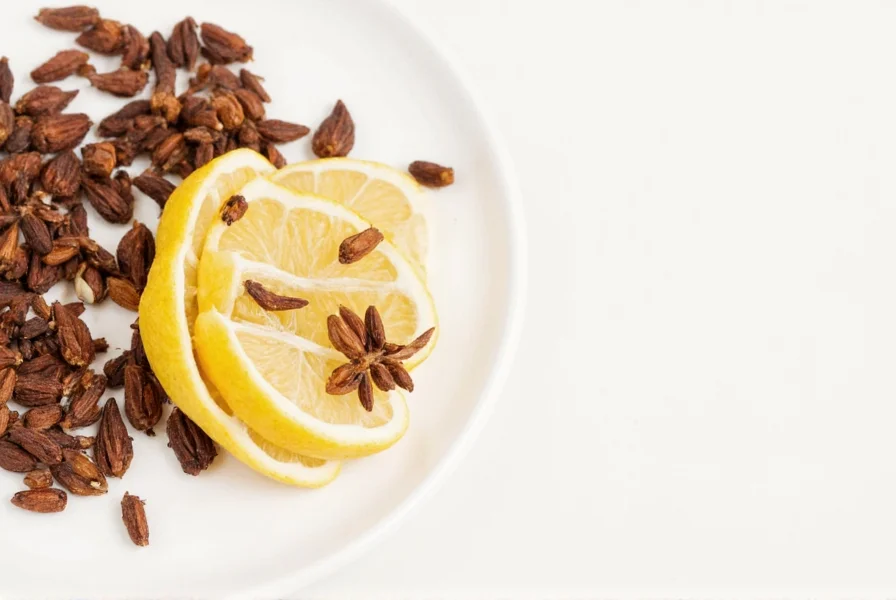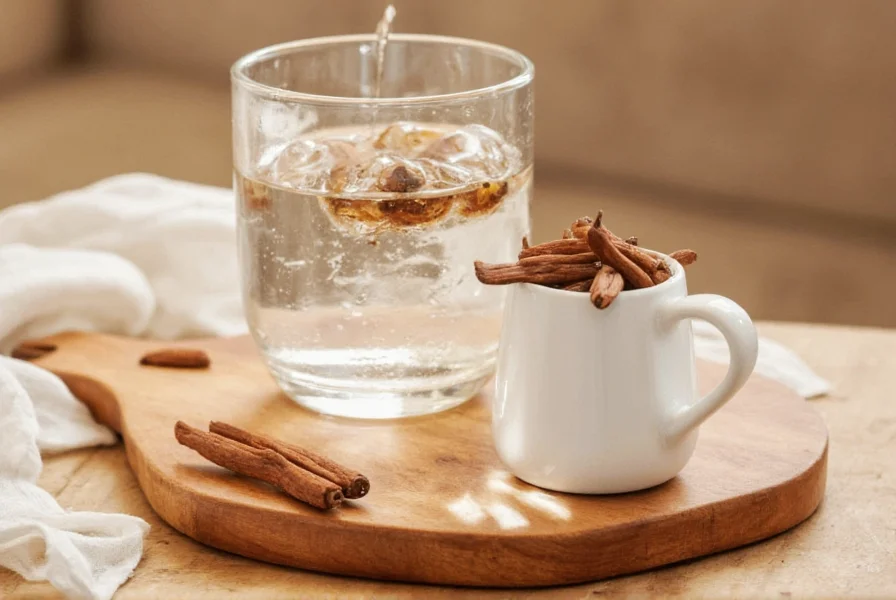Many natural health enthusiasts swear by the morning ritual of drinking clove water, but what does science actually say about this traditional practice? This comprehensive guide examines the evidence-based benefits of consuming clove water first thing in the morning, separating fact from folklore while providing practical preparation methods and important safety considerations.
What Exactly Is Clove Water?
Clove water is a simple infusion created by soaking whole cloves in water, typically overnight. Unlike clove tea which involves boiling, this cold infusion method preserves more of the delicate compounds found in cloves. The primary active component in cloves is eugenol, which constitutes 70-90% of clove essential oil and is responsible for many of the documented health effects.

Scientifically Supported Health Benefits of Morning Clove Water
1. Enhanced Oral Health Protection
One of the most well-documented benefits of clove water relates to oral health. The eugenol in cloves demonstrates significant antimicrobial activity against common oral pathogens. A 2018 study published in the Journal of Contemporary Dental Practice found that clove extract showed comparable effectiveness to chlorhexidine (a common antiseptic mouthwash ingredient) in reducing oral bacteria. Drinking clove water in the morning can help combat morning breath and support overall oral hygiene when used as part of a complete dental care routine.
2. Digestive System Support
Consuming clove water on an empty stomach stimulates digestive enzyme production. Research indicates that eugenol activates enzymes in the stomach and intestines that aid in breaking down food. This morning ritual may help alleviate common digestive issues like bloating and indigestion. The Journal of Agricultural and Food Chemistry published findings showing cloves enhance gastric mucus production, potentially protecting the stomach lining.
3. Powerful Antioxidant Effects
Cloves rank among the highest antioxidant-rich foods according to ORAC (Oxygen Radical Absorbance Capacity) values. The morning consumption of clove water provides your body with these antioxidants when your system is most receptive after overnight fasting. Antioxidants in cloves, particularly eugenol and flavonoids, help neutralize free radicals that contribute to cellular damage and chronic disease development.
| Key Compounds in Clove Water | Concentration | Primary Health Effects |
|---|---|---|
| Eugenol | 70-90% | Antimicrobial, anti-inflammatory, pain relief |
| Vitamin K | Moderate | Blood clotting, bone health |
| Manganese | High | Metabolism, bone formation, antioxidant function |
| Flavonoids | Moderate | Antioxidant, anti-inflammatory |
4. Blood Sugar Regulation Potential
Preliminary research suggests clove compounds may support healthy blood sugar levels. A study in the Journal of Diabetes Research demonstrated that clove extract improved insulin sensitivity in animal models. While human studies are limited, the chromium content in cloves may contribute to glucose metabolism. Those managing diabetes should monitor their levels carefully when incorporating this natural remedy, as it may enhance the effects of diabetes medications.
5. Anti-Inflammatory Properties
The eugenol in clove water acts as a natural COX-2 inhibitor, similar to some anti-inflammatory medications but without the same side effect profile. Regular morning consumption may help reduce systemic inflammation markers. Research published in Phytotherapy Research noted significant reductions in inflammatory markers among subjects consuming clove compounds.
How to Properly Prepare Morning Clove Water
For maximum benefits, follow this evidence-based preparation method:
- Place 4-5 whole cloves in a glass of filtered water
- Cover and let steep overnight (8-12 hours)
- Strain the water in the morning before drinking
- Consume on an empty stomach, 20-30 minutes before breakfast
This cold infusion method preserves more of the heat-sensitive compounds compared to boiling. For enhanced benefits, some traditional medicine practitioners recommend adding a slice of lemon or a small piece of cinnamon stick to the infusion.

Important Safety Considerations and Potential Side Effects
While generally safe for most people, clove water may cause issues for certain individuals:
- Bleeding risk: Eugenol may slow blood clotting. Avoid if you have bleeding disorders or are scheduled for surgery
- Dental sensitivity: Undiluted clove oil can damage tooth pulp, but properly prepared clove water is generally safe
- Pregnancy concerns: Limited evidence suggests moderation during pregnancy
- Medication interactions: May enhance effects of diabetes medications and blood thinners
The European Medicines Agency recommends not exceeding 2.5 mg of eugenol per kilogram of body weight daily. For most adults, one serving of properly prepared clove water falls well below this threshold.
Limitations of Current Research
It's important to acknowledge that while traditional use of cloves spans centuries, modern scientific research on clove water specifically is limited. Most studies examine clove extracts or essential oils rather than the water infusion method. Human clinical trials are particularly scarce, with much evidence coming from test tube studies or animal models. More rigorous research is needed to fully understand the optimal dosage, long-term effects, and specific mechanisms of action for morning clove water consumption.
Conclusion: A Simple Morning Ritual with Potential Benefits
Drinking clove water in the morning represents a simple, low-cost wellness practice with several scientifically supported benefits, particularly for oral health and digestion. While not a miracle cure, when incorporated as part of a balanced health regimen, this traditional practice offers a gentle way to harness the natural compounds in cloves. As with any natural remedy, consistency matters more than dramatic effects—regular consumption over time yields the best results. Always consult with your healthcare provider before making significant changes to your wellness routine, especially if managing chronic health conditions.
Frequently Asked Questions
How long should cloves soak in water for maximum benefits?
For optimal extraction of beneficial compounds without releasing excessive tannins, cloves should soak for 8-12 hours. Overnight soaking (approximately 10 hours) provides the ideal balance. Shorter soaking times yield weaker infusions, while extended soaking beyond 12 hours may increase bitterness without significant additional benefits.
Can I drink clove water every morning long-term?
Most people can safely consume clove water daily, but moderation is key. Limit to one serving per day (prepared with 4-5 cloves). Those with sensitive digestive systems may want to alternate days. Individuals taking blood thinners or managing diabetes should consult their healthcare provider before making this a daily habit due to potential interactions.
Does clove water help with weight loss in the morning?
While clove water isn't a direct weight loss solution, it may support healthy weight management indirectly. The morning consumption can improve digestion and reduce bloating, while the mild metabolic boost from compounds in cloves may enhance calorie burning. However, significant weight loss requires comprehensive dietary and lifestyle changes—clove water alone won't produce dramatic results.
What's the difference between clove water and clove tea for morning consumption?
Clove water (cold infusion) preserves more heat-sensitive compounds compared to boiled clove tea. The cold method yields a milder flavor and may retain different proportions of active compounds. Tea preparation destroys some volatile oils but extracts other compounds more efficiently. For morning consumption on an empty stomach, the gentler clove water is generally better tolerated by most people.
Can children drink clove water in the morning?
Children over 6 years can occasionally consume diluted clove water (1-2 cloves per glass), but daily consumption isn't recommended. The high concentration of active compounds may be too strong for developing systems. Always consult a pediatrician before introducing herbal remedies to children's routines, especially for morning consumption on an empty stomach.











 浙公网安备
33010002000092号
浙公网安备
33010002000092号 浙B2-20120091-4
浙B2-20120091-4